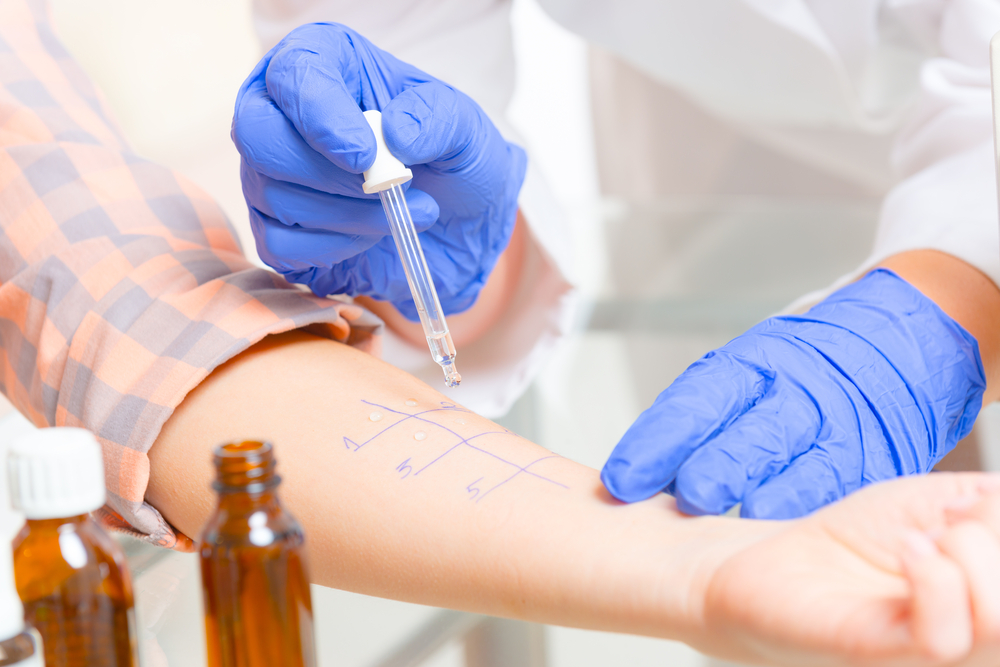
If your doctor suspects that you may have allergies, they will likely recommend allergy testing. The immune system responds to allergens with symptoms that can be mild, such as an itchy rash, to severe, such as constriction of the airway resulting in a visit to emergency care. Allergy testing can help identify some of the problem points so that you can steer clear of such allergens in the future. Luckily, there are several types of allergy tests available that our allergy shot doctors in PA can assist you with.
Prick and Intradermal Allergy Skin Tests
Prick and intradermal skin tests are the norm for suspected seasonal, environmental, stinging insects, food, and medication allergies. During the test, the suspected allergen is positioned on the skin and evaluated after 15 minutes for signs of allergic reactions. While prick testing uses a pricking device to place the allergen on the skin, intradermal skin testing involves placing a solution containing the allergen just below the skin via a small needle.
Blood Tests for Allergies
Skin testing is more common, but blood testing for allergies is also available. Typically, blood tests are recommended when patients cannot stop using antihistamines and other medications long enough for skin testing, when patients have dermatographism (hives resulting from scratching the skin), or when patients’ skin has lesions or rashes that might interfere with skin testing. These blood tests, known as specific IgE tests or RAST tests, help evaluate a patient’s suspected allergies, much like skin tests but using a blood sample.
Food and Drug Challenge Tests
Confirming a food or drug allergy may require food or drug challenge testing. The patient is given an incremental dose of food or drugs suspected of causing allergic symptoms, and then the patient is observed between doses to assess allergic reactions. Because of the risk of allergic reactions, food and drug challenge tests are supervised by a physician.
Patch Allergy Testing
Patients with contact dermatitis may benefit from patch allergy testing. This testing can help to reveal an underlying trigger for the condition, which often produces symptoms after using skincare products or wearing metal jewelry. The test requires wearing a patch with the suspected agent on the back for 48 hours, after which time the skin is evaluated for signs of contact dermatitis.
Patients in Montgomery, Bucks, or Philadelphia Counties and in Willow Grove can count on the nasal allergy specialists at the offices of Dr. Goldberg for allergy testing and treatment.






